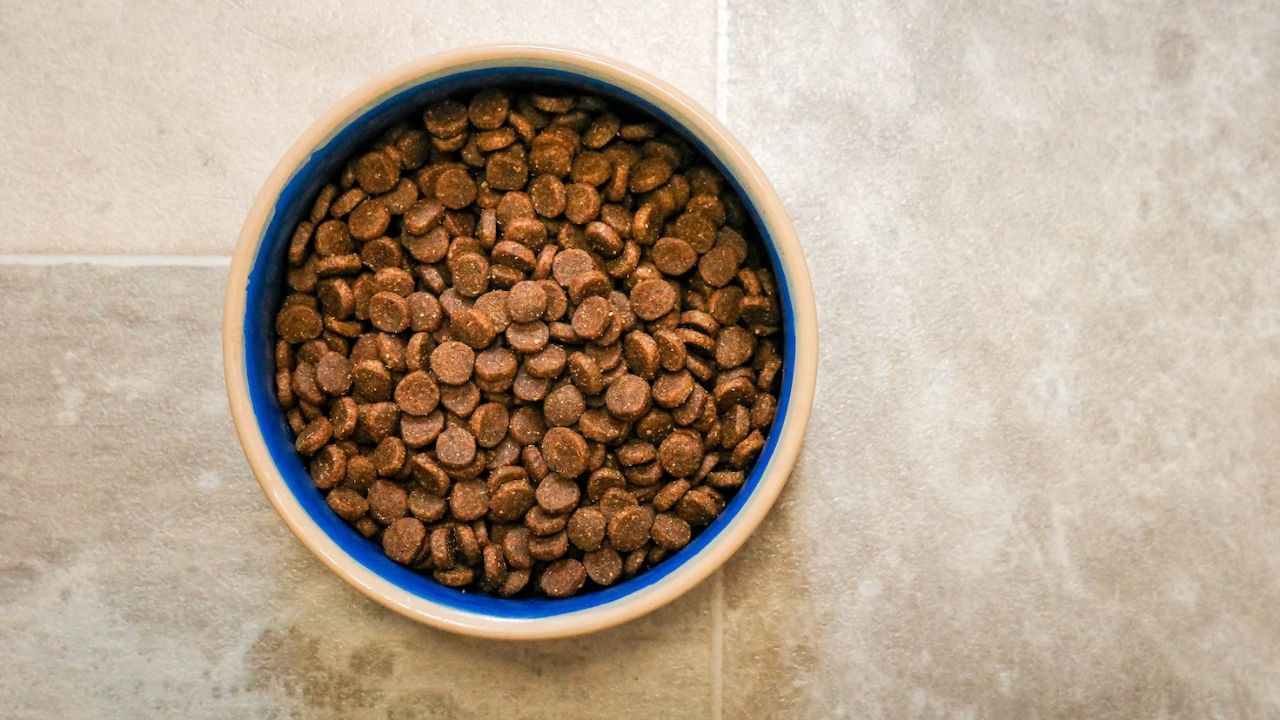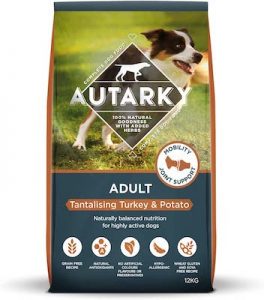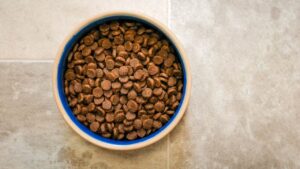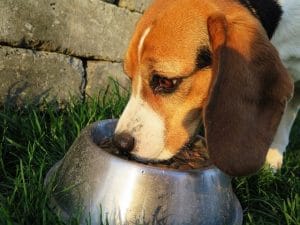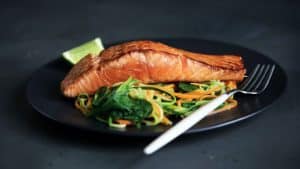I was going through one of our articles, Best Wet Dog Food in the UK, and noticed many comments from our readers. They mentioned how grain-free food is not good for dogs as it lacks “taurine.”
It stood out because “lack of taurine” is a peculiar reason to reject grain-free kibble. For starters, grains never had taurine. Meat does. Your dog’s taurine consumption is independent of their grain intake (or lack thereof).
As a dog owner myself, I decided to do some research. Apparently, there’s a LOT of misconception about grain-free food. Admittedly, there are a few valid arguments as well.
So let me break down grain-free dog food for you – the good, the bad, and the misconceptions.
1. What exactly is grain-free dog food?
Grain-free dog food does not contain common grains such as wheat, corn, rice, or barley. The idea is to eliminate grains from the diet, which some believe can be difficult for dogs to digest.
Due to the recent trend, pet owners have been trying to give their dogs an authentic / ancestral diet – something wolves or wild dogs would eat in the wild. Some pet owners and experts also argue that grains can lead to allergies, digestive issues, and weight problems in dogs.
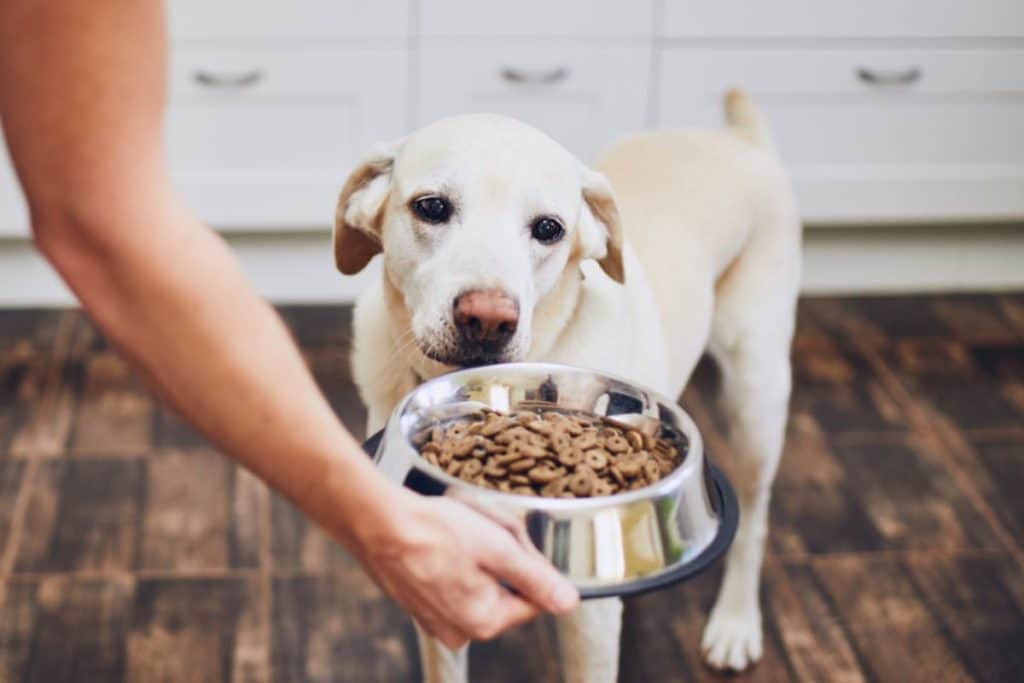
This led to a boom in the popularity of grain-free dog food and thus began the problems. Unfortunately, many dogs got sick as we shifted away from a balanced and nutritional diet in hopes of being “authentic.”
One of the most significant controversies revolves around a potential link between grain-free diets and a heart condition called Dilated Cardiomyopathy (DCM). This concern prompted the U.S. Food and Drug Administration (FDA) to investigate further.
2. Why Is Grain-Free Food Bad for Your Dog?
The FDA published reports and updates on their findings, which led to more significant scrutiny of grain-free dog food and a LOT of misconceptions.
As a sub-category, grain-free dog food isn’t bad. It’s actually beneficial for dogs with specific medical conditions. On the other hand, it’s entirely unnecessary and borderline harmful for healthy mutts.
That said, many subpar grain-free kibble and wet food items are available for dogs in the market. And choosing a low-quality product may negatively affect your pooch’s health.
A. Increased Carb Intake
Contrary to popular belief, grain-free dog food can increase your dog’s carb and calorie intake without your knowledge. And, as you know, increased starch in your dog’s body can be very harmful.
Many grain-free products use replacement grains like lentils, peas, white potatoes or quinoa. Unlike grains, these alternatives don’t provide any nutritional value and contribute to canine obesity instead.
To check the starch content of your dog’s food product, you can use this formula:
Starch / Carbohydrate Percentage = 100 – (Protein + Fat + Moisture + Ash)
Note: If it isn’t listed, you can assume the ash percentage to be 7% (for kibble) and 2% (for wet food).
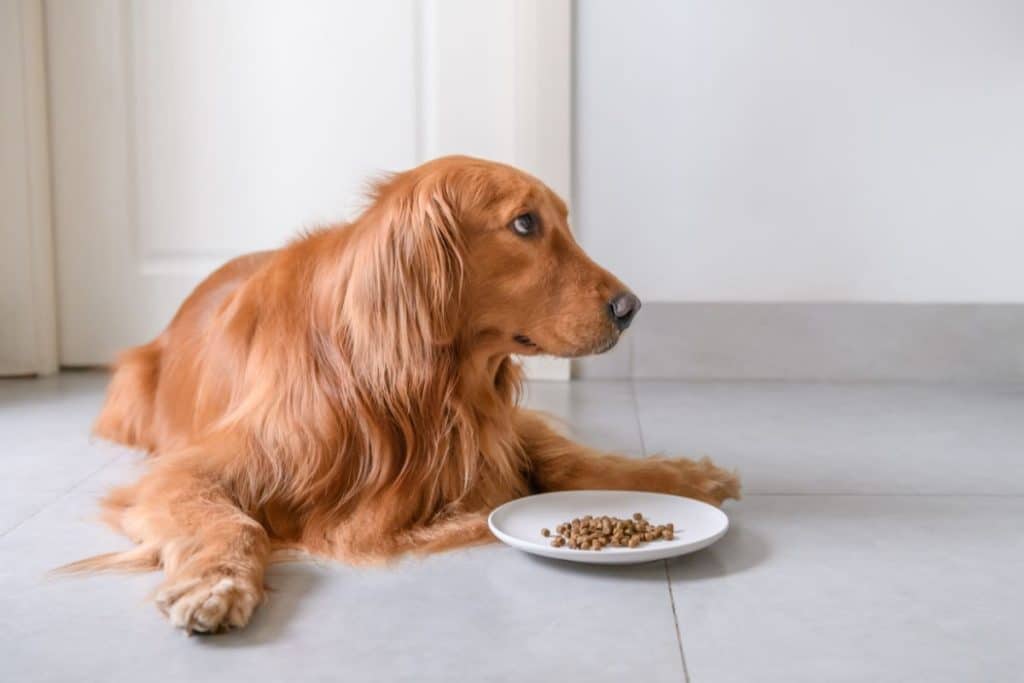
B. Genetically Modified Organisms (GMOs)
Genetically Modified plants are raised in labs to resist insects and viruses. This is done to ensure a higher yield each season. However, this increases the toxicity and side effects of the crops due to the herbicides.
GMO crops include legumes, peas, beets, canola, rice, potatoes, etc. These ingredients are predominantly found in commercial pet food because they’re economical and widely available.
Unfortunately, GMO crops are linked to various issues such as organ damage (including liver, kidney, pancreas and reproductive), disorders (including endocrine and digestive), allergies, cognitive issues and even cancer.
What’s worse is if these crops aren’t present in your dog’s product, there’s still a possibility that the animals who make up the protein were fed these crops.
C. Glyphosate
Speaking of GMOs riddled with herbicide, Glyphosate is a big problem. It’s a common animal carcinogen linked to kidney issues, gastrointestinal problems, chronic inflammatory diseases, bowel problems and even brain issues.
The GMO rabbit hole is very deep, so you must tread carefully.
It’s best to confirm the ingredient sources of your brand’s manufacturer. Several grain-free brands adhere to ethics and quality standards – you just need to find them.
D. Low-Quality Proteins
To save their costs, many subpart product manufacturers opt for low-quality proteins.
They may sound amazing from a vegan’s perspective, but plant-based proteins aren’t ideal for your canines. They’re high in starch and known to cause several issues, including hormonal and digestive imbalance.
Besides starch, there are other problems with plant proteins, such as lectins. They’re designed to protect plants but make your dog sick. Lectins also block the absorption of crucial nutrients like Zinc, Calcium, Potassium and Iron.
Similarly phytic acid (plant protein like lectins) can block the absorption of phosphorus, iron and manganese.
3. Can Grain-Free Food Cause Heart Disease in Dogs?
Grain-free dog food was suspected to cause a heart muscle disease in canines called Dilated Cardiomyopathy (DCM). However, the FDA investigation that began in 2017 ended in Dec 2022 with inconclusive evidence. It reported no substantial links between a dog’s diet and DCM.
DCM is a fatal heart condition characterised by an enlarged heart muscle, which can lead to congestive heart failure.
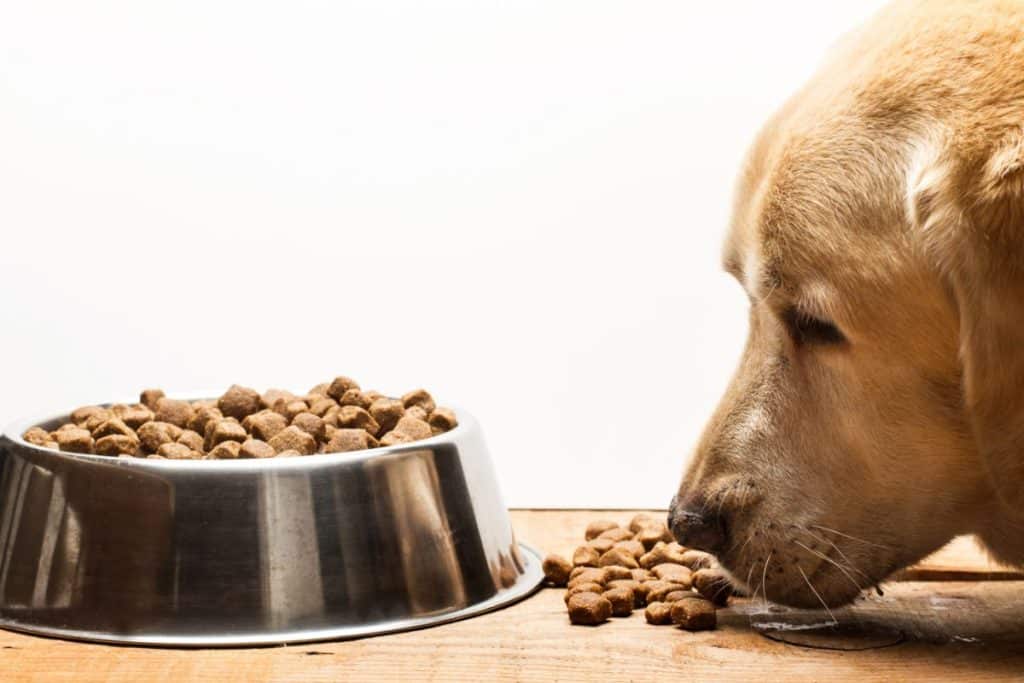
The FDA investigated a potential link between grain-free diets and DCM in 2017-18.
As of 2023, there have been 17 peer-reviewed studies involving 1,382 dog cases reported to the FDA.
One notable observation from these studies is the association between pulses, which are part of the legume family (including ingredients like peas, lentils, and chickpeas), and the reported cases of DCM. Pulses are prominently listed in the ingredient lists of the diets associated with DCM cases.
Despite ongoing research and investigations, the FDA has not determined the link between grain-free diets and DCM.
According to the FDA, as of 12/23/2022, the FDA does not intend to release further public updates until there is meaningful new scientific information to share. A count of reports of DCM in dogs submitted to the FDA as of November 1, 2022, has been added to Questions & Answers: FDA’s Work on Potential Causes of Non-Hereditary DCM in Dogs.
While adverse event numbers can signal an issue with an FDA-regulated product, they do not supply sufficient data to establish a causal relationship with the reported product(s).
4. When Is Grain-Free Food Good for Dogs?
Grain-free dog food is beneficial for dogs with medical conditions. A carefully selected grain-free diet may alleviate symptoms and improve your dog’s well-being if diagnosed with grain allergies, celiac disease, or other issues like epileptoid cramping syndrome.
While the grain-free controversy has raised valid concerns, it’s essential to recognise that grain-free dog food can have its benefits, especially for specific canine conditions.
Celiac Disease in Dogs
Similar to us, some dogs can develop celiac disease, an autoimmune disorder triggered by the consumption of gluten.
Dogs with celiac disease will experience stomach distress, skin issues, and nutrient malabsorption when exposed to gluten. In such cases, a grain-free diet is necessary for their health.
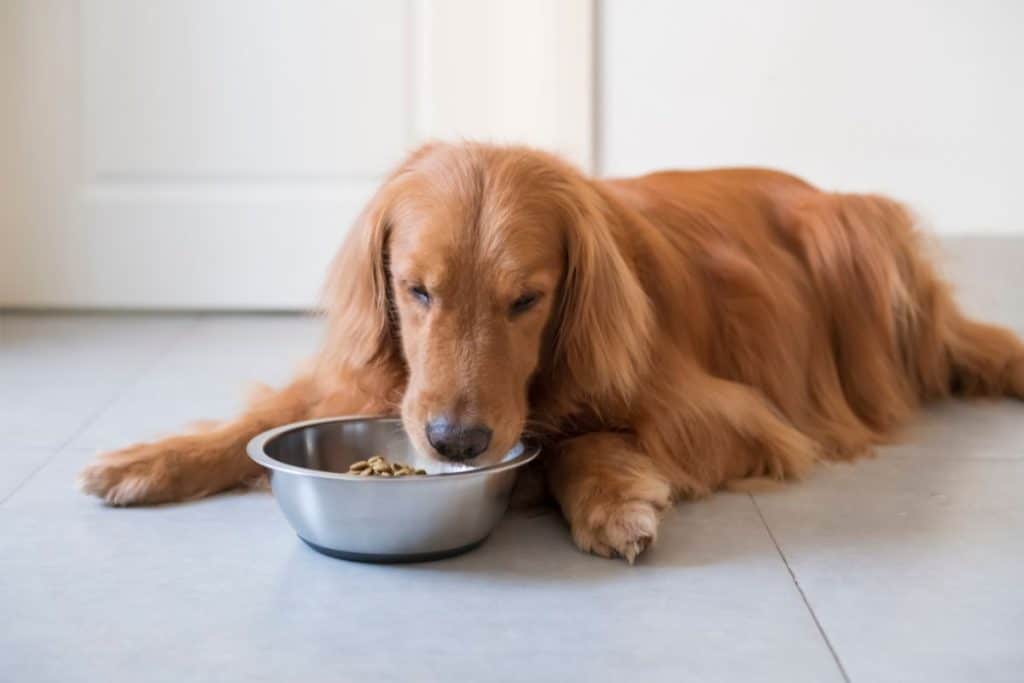
Epileptoid Cramping Syndrome
Certain dog breeds, like Border Terriers, are prone to a condition known as epileptoid cramping syndrome (ECS). This neurological disorder can cause seizures, muscle cramps, and tremors.
While further research is needed to establish a definitive link, it suggests that grain-free food might be suitable for managing specific health conditions.
Conclusion
Grain-free kibble was never the problem. It exists for a reason. Some dogs genuinely need it.
The problem was us. We watched a few Internet videos and tried feeding grain-free food to our dogs as a “healthy alternative.” Another problem is the companies that pass off cheap and subpar grain-free food as “economical options.”
So, what should you – a caring dog parent – do?
Talk to your veterinarian. Find out whether your dog requires a grain-free diet or not. And if they do, head on to my post, “Best Grain-Free Dry Dog Food for Dogowners in the UK!”
5. What are some misconceptions about grain-free dog food?
A. Grains Can Cause Allergies
This is causation without correlation.
Dogs can be allergic to grains, so they may have to switch to grain-free food options. But grains themselves cannot create allergies among dogs who never had them.
B. Grain-Free Equals Super Healthy
Grain-free kibble relies on alternative carb sources like potatoes or lentils to provide energy to our furry friends. So, they contain sugars, fats, and carbohydrates like general dog food with grains.
Moreover, grain-free food isn’t as “natural” as it’s made out to be. A company that uses low-quality protein sources in their general products will use the same with grain-free.
C. Grain-Free Food Affects Taurine Intake
This misconception is actually against grain-free food. Nonetheless, it’s just as unfair and unscientific.
Grains never contained taurine in the first place. Your dog’s taurine intake depends on their meat consumption and has no correlation with grains in their food.
Also, taurine isn’t as important as you think anyway.
“Nutritional research indicates that taurine is generally not considered an essential amino acid for dogs because these animals can synthesise taurine from cysteine and methionine.
Nearly all the grain-free products had methionine-cystine values above the minimum nutritional requirement of 0.65 per cent for adult maintenance food for dogs published in the AAFCO Official Publication (OP).”
FDA Investigation Report & Updates
